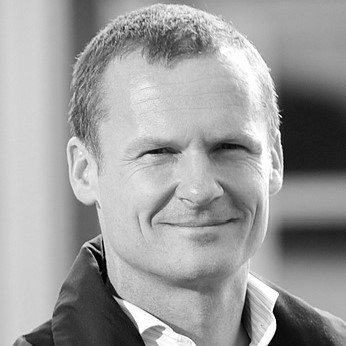Debate on The Contested Provisioning of Care and Housing
The end of neoliberalism?
15th of September, 2022

Richard Bärnthaler
Even though arguments about a supposed ‘return of the state’ in the course of the Covid-19 crisis are imprecise – for the state has never been absent – we have been witnessing a notable reconfiguration of the roles Western states play in the economy, shifting from a strong emphasis on market-making towards a more pronounced presence of market-direction, i.e. “acts by the state that seek to direct markets towards certain desired longer-term outcomes and purposes by steering the accumulation process itself” (van Apeldoorn & de Graaff 2022, 4). Furthermore, the Russia-Ukraine war has revealed the illusion that the triumph and expansion of market-liberalism would foster democracy and secure peace as self-mockery at best. In the face of rising geopolitical tensions, arguments for selective deglobalisation (alias selective regionalisation) have increasingly entered dominant political discourse. Is this the end of neoliberalism, the beginning of a great transformation? This question also preoccupied the participants of the workshop ‘Contested Care and Housing’. While some argued that the end of neoliberalism is indeed approaching, others disagreed, arguing that recent neoliberal anomalies are just those (Gramscian) morbid symptoms that appear when the old is dying but the new cannot be born. Without taking sides, I deem it useful to call to mind the conviction of the great historian Eric Hobsbawm: the result of a horse race can only be told with absolute confidence once that race has already been run. The neoliberal horse race is still ongoing.
All the same: something is changing; the (jolly old) favorite is groggy, not just because its physical appearance has altered but because its mentality is in crisis. The mentality that neoliberalism has built upon can be summarized in the well-known abbreviation TINA – ‘There Is No Alternative’. Many have argued that there is a non-dissociable link between TINA and neoliberalism; some have even suggested that it is the main feature of it. If TINA is indeed part of neoliberal’s DNA, the latter is in an existential crisis. Based on the assumption that individual consumer preferences determine demand, thus price, and thus value, neoliberals have insisted that any distinction, e.g. between necessities and luxuries, even if democratically legitimated, is (market-)unfair and thus reprehensible. There is no alternative to determining societal directionality through consumer choices. All of a sudden, however, alternatives were put into practice during the pandemic: governments published lists of essential workers, shut down certain parts of the economy, and, in the US, even obliged GM to switch their production from cars to ventilators. Similarly, with the war in the Ukraine, governments started to develop plans to determine which industries will have to endure cuts in energy supply if gas becomes short.
(The end of no) alternatives have become broadly conceivable – if not out of conviction, then out of necessity. Drawing upon Bob Jessop’s distinction, the perception of certain crises has changed from “crises in” towards “crises of”, i.e. from crises that can be managed through routinized TINA-adjustments (e.g. by shifting its effects elsewhere, into the future or on vulnerable groups) towards a crisis of (neoliberal) crises management itself. Severe crisis symptoms, e.g. surging prices on everyday necessities, have afflicted broad sections of the Western population and, increasingly unable to shift these effects elsewhere (let alone solving them), normal (read: TINA) responses no longer work.
Surely, the adaptability and resilience of neoliberalism (not to be confused with the resilience of society, which has been undermined continuously by neoliberalism) must not be underestimated. Neoliberalism is, albeit not well, still alive and powerful forces will continue their attempts to nurture and enforce its logics. TINA, however, is dead. Hence, the key questions are: How essential is this discursive building block for neoliberalism? Can neoliberalism do without it? And if so, how would such a neoliberal mutation look like? (Much more authoritarian, probably). Are European decision-makers stupid enough to re-enter a neoliberal path of austerity, even if the result – the rise of Le Pens, Orbans, and Katschinskis – is foreseeable? In the current conjuncture, Polanyi’s lifelong conviction seems to find its way back into hegemonic discourse: ‘There Are Many and Real Alternatives’ (TAMARA). Neoliberalism might still be one of them, but others have been re-discovered. In particular, there are crucial lessons to learn from “war economies” and their ability to mobilise resources and make substantial economic adjustments to accommodate a specific societal goal. In an era of increasing social-ecological crises, an adapted form of a “war economy”, aiming not at defense production but at sufficiency, i.e. at having enough in the double sense of the word (neither too much, nor too little), might indeed constitute the most effective politico-economic arrangement to satisfy needs within ecological limits.
Reference
van Apeldoorn, B., & de Graaff, N. (2022). The state in global capitalism before and after the Covid-19 crisis. Contemporary Politics, 28(3), 306–327.
Richard Bärnthaler
Richard Bärnthaler is a prae doc researcher at the Vienna University of Economics and Business, Institute for Multi-Level Governance and Development. His research focuses on strategies for a social-ecological transformation. He is a.o. winner of the Kurt Rothschild Award for Economic Journalism and Research 2019, member of the International Karl Polanyi Society and part of the Vienna Foundational Economy Collective.
Read the other essays on the Contested Provisioning of Care and Housing here:










